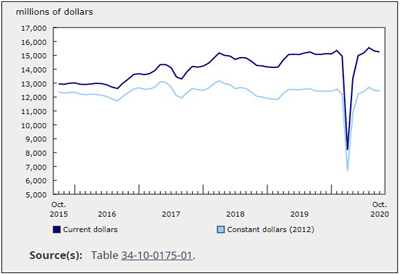Future Gazing — By Franz H. Tyaack, President, Westinghouse Canada Ltd.

January 3, 2017
Franz H. Tyaack was President, Westinghouse Canada Ltd., from 1978 to 1985
Golden anniversaries are celebrated by the mature, and our industry is allowed to celebrate this anniversary because it is indeed mature. Those who forecast the future for mature industries, particularly if they extrapolate from past industry experience, usually come pessimistic. On the other hand, if one recognizes the future is not necessarily an extrapolation of the past, a much more optimistic forecast can result. There are some important discontinuities that have occurred in the world since the electrical industry was born. The driving forces that help shape the future are not necessarily the same ones that were dominant in the past.
We can be assured that our industry does have a future. While the product is mature, it is not a buggy whip, nor is it a sunset industry, due to move offshore.
The electrical industry came into being in a world of plentiful energy. Cost of energy was not high on the list, compared to other economic costs, nor was there a dominant concern over security of supply.
Electrical power was not adopted because energy in that form was cheaper than the primary energy that was consumed in manufacturing the electrical power. How could it be? Nor was it adopted because it offered security of supply. Its selling points had to do with transportability, flexibility and controllability, cleanliness at point of use, etc.
These advantages of electrical energy remain for the future, as well. What has changed, however, is the economics of primary energy, particularly with regard to non-renewable sources. While new sources of petroleum, for example, are still being found, their extraction costs are very much higher than those of the older, lowest cost sources that are depleting, suggesting that longer term, despite significant short term cyclic variations, the cost curve will continue climbing. And while security of supply has not been an issue at the moment, a significant reliance still exists upon a sector of the world of less than ideal stability.
Therefore, cost and security of energy supply will be much more dominant concerns of the future than they have been in the past. We can add to that a much more heightened concern over environmental and social acceptability of economic endeavours, across all energy industries, including our own.
Against these changing concerns, the Canadian electrical industry is well positioned. It is already a larger industry on a per capita basis than most, because of heavy-power-using resource-related industries in Canada that export much of their product. Canada, as well, is heavily endowed with secure, low cost, renewable water power as a primary source. There seems to be no practical alternatives to harnessing that water power, other than converting it to electricity.
I would predict the most likely way that Canada’s comparative advantage in electrical power will be exploited is by importation of heavy-power-using industries, although direct exportation of electrical power may continue to grow for some time. The longer term driving forces leading to this prediction are currently suppressed, such as recession, high interest rates with accompanying slump in business investment, and unwarranted euphoria concerning the supply of non-renewable energy sources. But economic realities can’t be suppressed forever.
Canada has also committed itself to still another alternative primary energy source, nuclear. In that case, the new elements in the world, which will remain with us in the future, involve increased environmental and social concerns. In the past, the engineering task did not include, nearly as much, such parameters. Sometimes the engineer would see them as unwarranted interference from irrational people. We have now accepted, I believe, that environmental and social parameters are part of the design equation. Once we’ve accepted that fact, we need not be pessimistic about finding the equation’s solution. At this stage, there remains some degree of unfinished work. My prediction is that the future will see it completed.
One more trend of the future is worth mentioning. It has already shown itself, but is at the moment in abeyance. Within society, there has already been a dramatic growth in demand for services. Just one example is the rapid growth that was occurring before the recession in the number of meals families consumed outside the home. There are many other examples.
As we get back on the track toward growth in the future, and increasing standard of living, accompanied as well with a continued increase in leisure time, the service sector will represent the fastest growth opportunity at the consumption side of our industry. And that will include all kinds of personal services and business services. Canadian electrical distributors, of course, are a part of the service sector, and share this bright outlook.
While there have been significant changes in the world across our golden years, one fact will probably remain unchanged in the future: and that is, level of standard of living and levels of consumption of electricity walk hand-in-hand.











